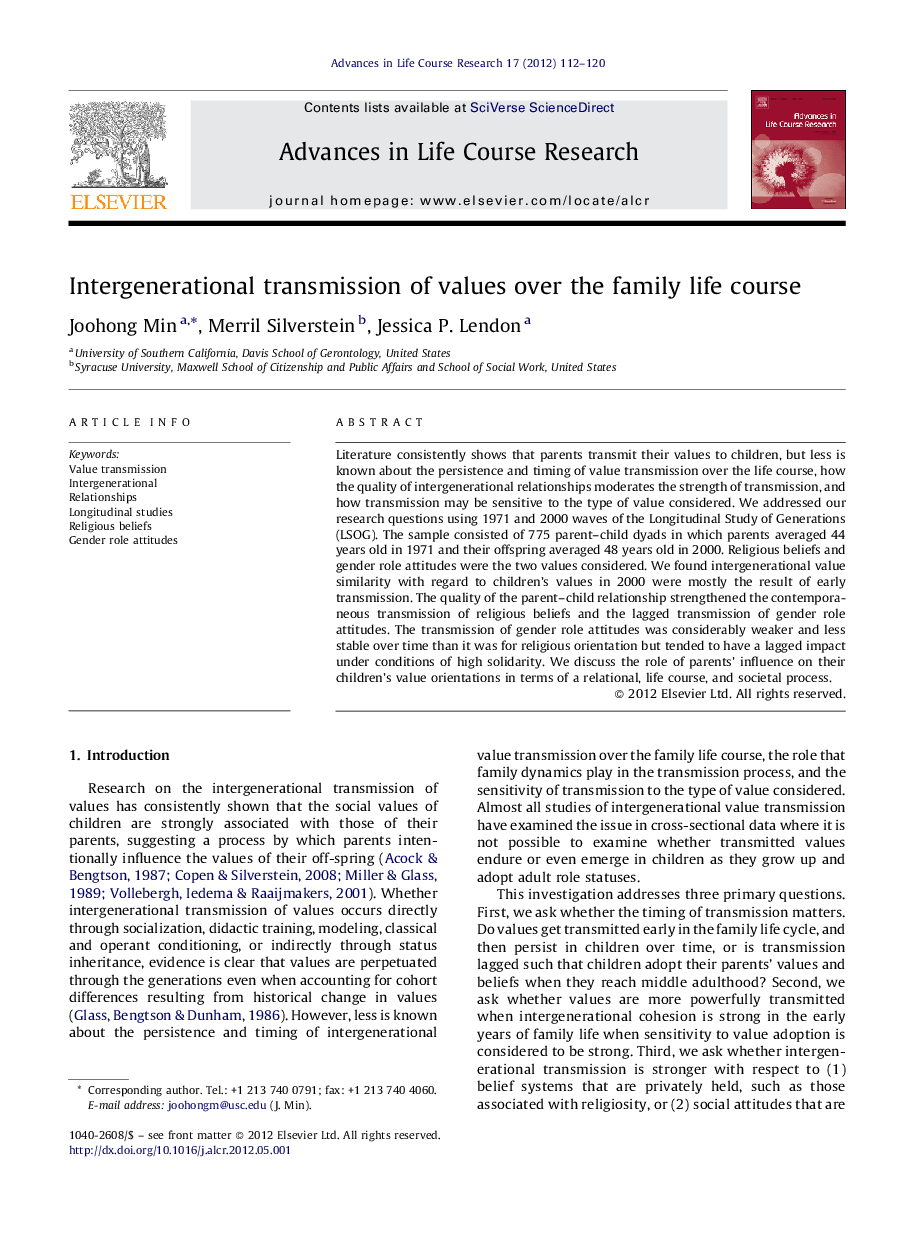| Article ID | Journal | Published Year | Pages | File Type |
|---|---|---|---|---|
| 313259 | Advances in Life Course Research | 2012 | 9 Pages |
Literature consistently shows that parents transmit their values to children, but less is known about the persistence and timing of value transmission over the life course, how the quality of intergenerational relationships moderates the strength of transmission, and how transmission may be sensitive to the type of value considered. We addressed our research questions using 1971 and 2000 waves of the Longitudinal Study of Generations (LSOG). The sample consisted of 775 parent–child dyads in which parents averaged 44 years old in 1971 and their offspring averaged 48 years old in 2000. Religious beliefs and gender role attitudes were the two values considered. We found intergenerational value similarity with regard to children's values in 2000 were mostly the result of early transmission. The quality of the parent–child relationship strengthened the contemporaneous transmission of religious beliefs and the lagged transmission of gender role attitudes. The transmission of gender role attitudes was considerably weaker and less stable over time than it was for religious orientation but tended to have a lagged impact under conditions of high solidarity. We discuss the role of parents’ influence on their children's value orientations in terms of a relational, life course, and societal process.
